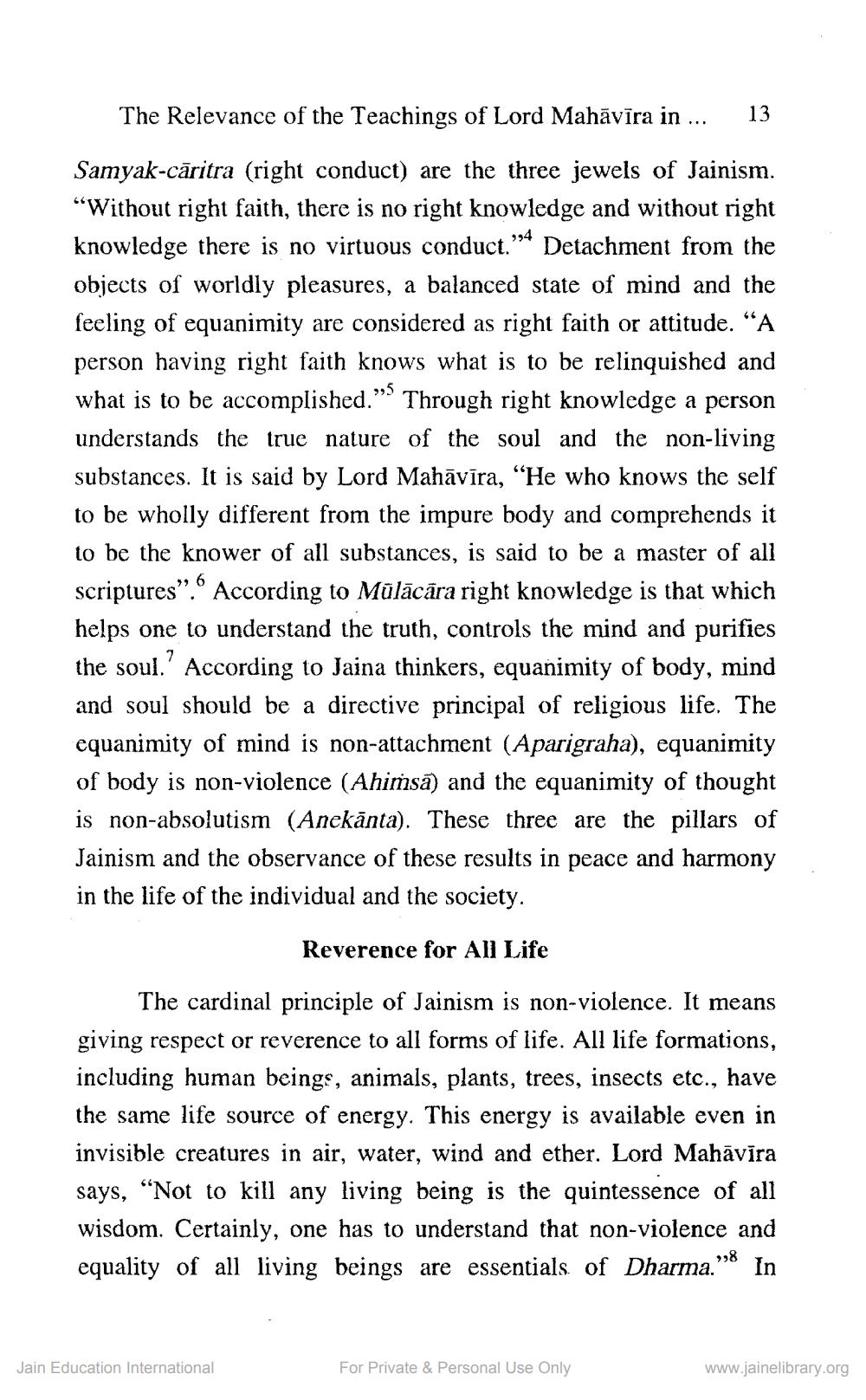________________
The Relevance of the Teachings of Lord Mahāvīra in ... 13
154
Samyak-caritra (right conduct) are the three jewels of Jainism. "Without right faith, there is no right knowledge and without right knowledge there is no virtuous conduct." Detachment from the objects of worldly pleasures, a balanced state of mind and the feeling of equanimity are considered as right faith or attitude. "A person having right faith knows what is to be relinquished and what is to be accomplished." Through right knowledge a person understands the true nature of the soul and the non-living substances. It is said by Lord Mahāvīra, "He who knows the self to be wholly different from the impure body and comprehends it to be the knower of all substances, is said to be a master of all scriptures"." According to Mūlācāra right knowledge is that which helps one to understand the truth, controls the mind and purifies the soul. According to Jaina thinkers, equanimity of body, mind and soul should be a directive principal of religious life. The equanimity of mind is non-attachment (Aparigraha), equanimity of body is non-violence (Ahimsa) and the equanimity of thought is non-absolutism (Anekānta). These three are the pillars of Jainism and the observance of these results in peace and harmony in the life of the individual and the society.
7
Reverence for All Life
The cardinal principle of Jainism is non-violence. It means giving respect or reverence to all forms of life. All life formations, including human beings, animals, plants, trees, insects etc., have the same life source of energy. This energy is available even in invisible creatures in air, water, wind and ether. Lord Mahāvīra says, "Not to kill any living being is the quintessence of all wisdom. Certainly, one has to understand that non-violence and equality of all living beings are essentials of Dharma." In
58
Jain Education International
For Private & Personal Use Only
www.jainelibrary.org




